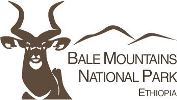Current Challenges - Increasing Human Populations, Settlement And Resource Use
Historical reports indicate that there were few permanent settlements in the park prior to its establishment, but seasonal pastoralists used grazing land in the area. However, humans and settlement have all been increasing in the Bale Mountains at an alarming rate and a shift from traditional livestock husbandry and honey gathering to mixed farming is also apparent. It is now estimated that there are over 3000 households in the park accounting for roughly 20 000 permanent people and an equivalent number of seasonal resource users. The consequences of expanding settlement and human use in this ecosystem are:
- Habitat loss and degradation due to fuel wood harvesting, overgrazing, and expanding agriculture
- Competition between domestic animals (livestock and dogs) and wildlife
- Lack of regeneration of important tree species and expansion of invasive and unpalatable plant species
- Disease transmission to Ethiopian wolves and hybridization between dogs and Ethiopian wolves
- Soil erosion, soil compaction, and watershed degradation leading to reduced flow of perennial rivers
- and increased risk of seasonal flooding locally, regionally and internationally
- Over-harvesting of resources, particularly fuel wood and construction materials
- Loss of wildlife corridors due to expanding settlement and agriculture
These threats to the biodiversity and ecosystem are compounded by the fact that the park is not currently gazetted and therefore has a weak legal framework, the boundary is not yet clearly defined or agreed by communities, the park management is not sufficiently staffed, trained or empowered, the operating budget from the government is small and totally inadequate for effective park operations, there is little revenue from tourism (despite the enormous tourism potential of the park), and there is little involvement of or benefits to communities living in or adjacent to the park.
